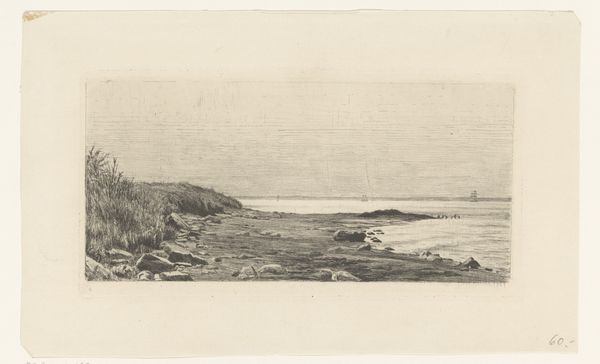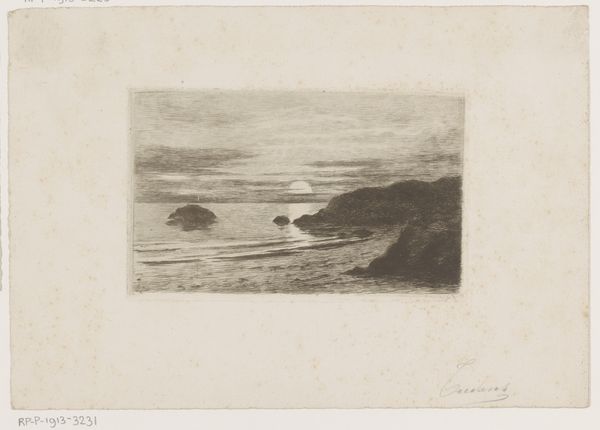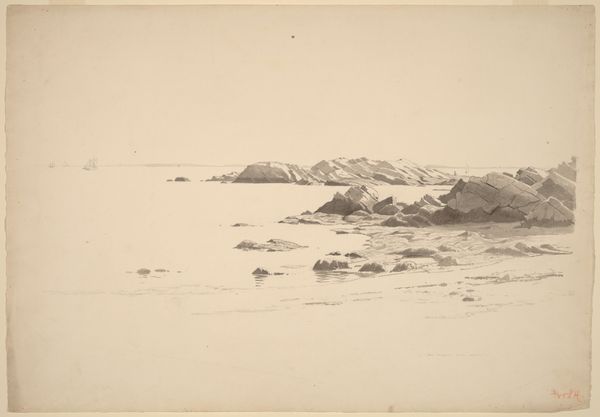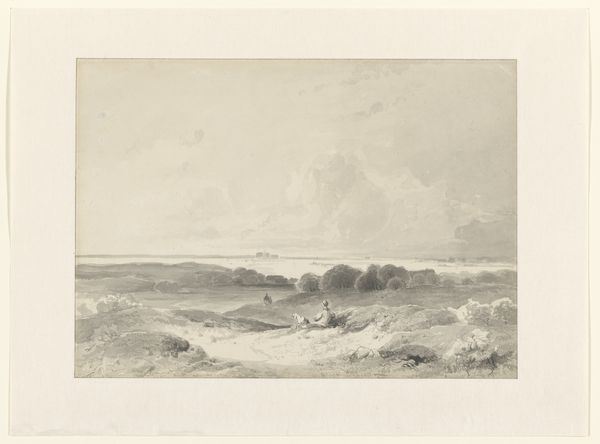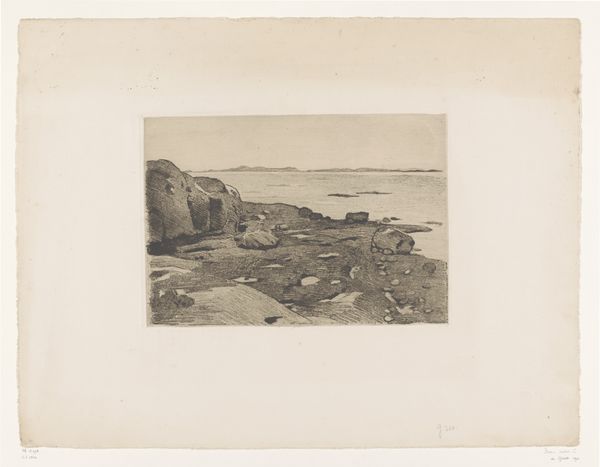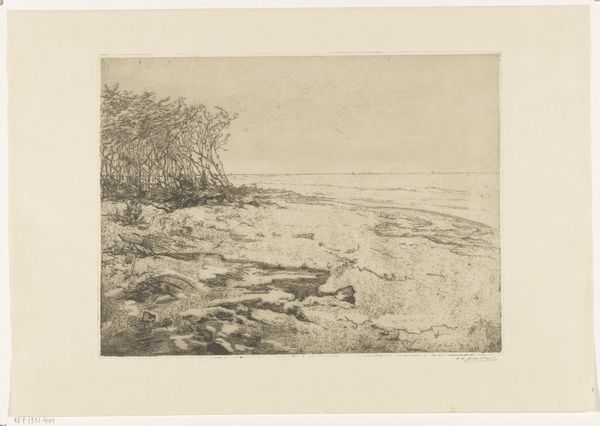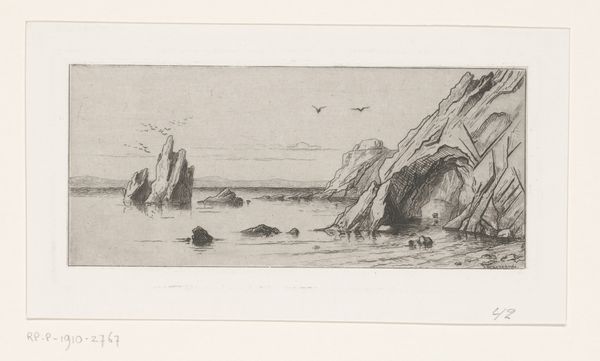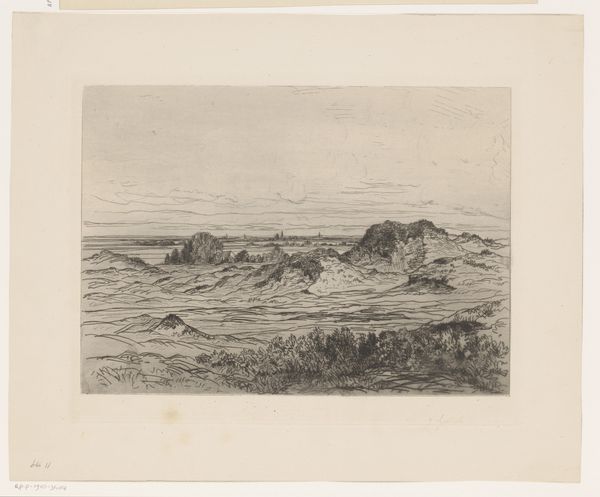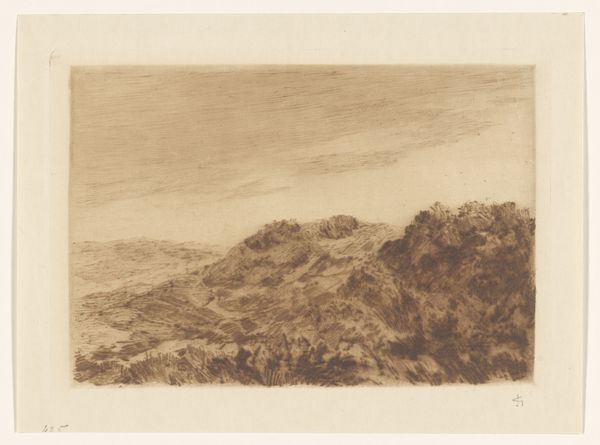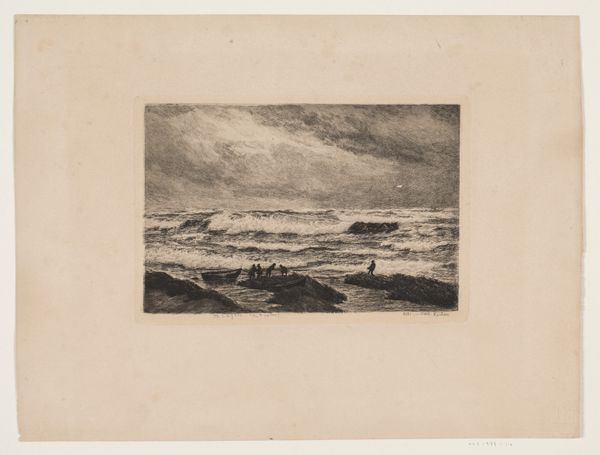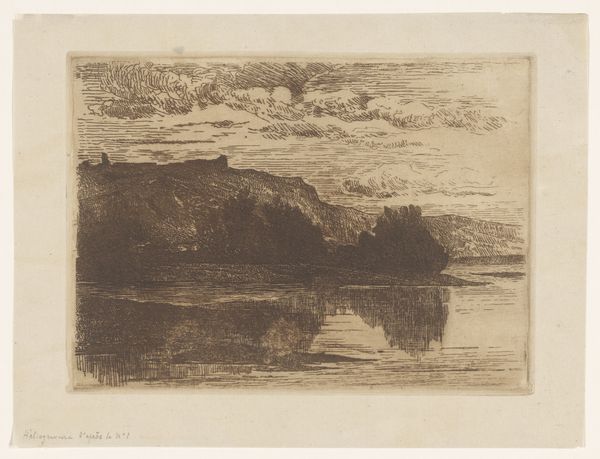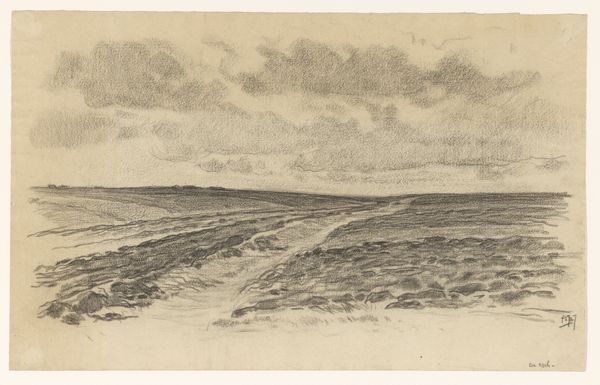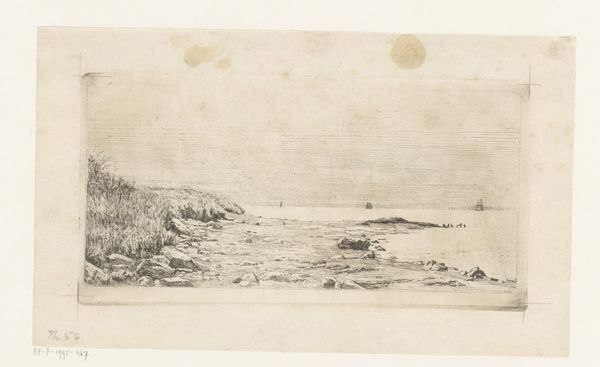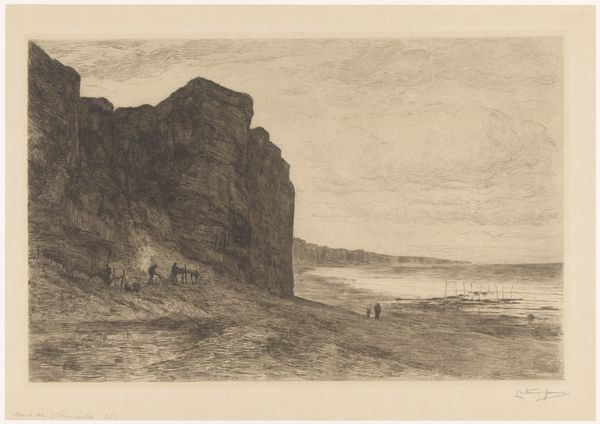
print, photography
#
print photography
#
16_19th-century
# print
#
landscape
#
photography
#
realism
Dimensions: height 338 mm, width 495 mm
Copyright: Rijks Museum: Open Domain
Auguste Allongé created this rocky coast using graphite, likely in the late 19th century. The choice of graphite, a humble material more associated with preparatory sketches than finished artworks, is telling. Look closely, and you'll see how Allongé coaxes a full range of tonal values from it. The soft, almost hazy atmosphere is achieved through delicate layering and subtle gradations, a testament to the artist’s skill. The texture of the rocks is rendered with remarkable fidelity, each stone possessing a unique character. The rough, unfinished quality of the graphite seems fitting for the subject matter, emphasizing the unadorned beauty of nature. Graphite's accessibility democratized art making, offering a means of expression beyond traditional boundaries of academic painting. Allongé's work challenges any rigid distinction between high art and the craft of drawing.
Comments
No comments
Be the first to comment and join the conversation on the ultimate creative platform.
